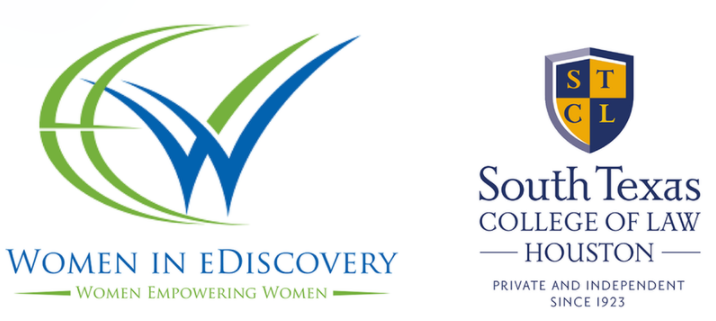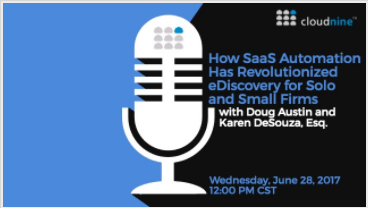With Ample Evidence of Bad Faith, Court Sanctions Defendant for Failure to Produce Documents: eDiscovery Case Law
In CrossFit, Inc. v. Nat’l Strength and Conditioning Assn., No. 14cv1191 JLS (KSC) (S.D. Cal. May 26, 2017), California District Judge Janis L. Sammartino granted the plaintiff’s motion for several issue, evidentiary, and monetary sanctions, but denied the plaintiff’s request for terminating sanctions due to the defendant’s bad faith that resulted in the defendant’s failure to produce documents.
Case Background
In this case between competing fitness training organizations where the plaintiff argued that the defendant published a false study regarding the plaintiff’s program and injury rates of its participants, the defendant filed a separate suit in state court against the plaintiff alleging trade libel, defamation, and unfair business practices. The plaintiff received discovery during the state-court action that appeared to either directly respond to discovery or contradict assertions the defendant deponents had made in this case. The plaintiff then deposed the defendant’s Education Coordinator in the state-court case, during which he admitted that several of the statements in his federal-action declaration, submitted under penalty of perjury, were false. The plaintiff then “ran several controlled searches in the state-court production” which “yielded hundreds of documents material to the issues in this action and that the defendant should have produced in response to the plaintiff’s discovery requests in this case.
Given that pretrial proceedings were only several weeks away at the time the plaintiff discovered these documents, the plaintiff simultaneously moved to continue the pretrial proceedings and for sanctions against the defendant, including terminating sanctions or, in the alternative, issue, evidentiary, and monetary sanctions.
Judge’s Ruling
Judge Sammartino, indicating that the documents withheld “are too numerous to comprehensively catalog”, provided several examples in her order, including various emails, a 2013 executive summary and “[d]ocuments that affirmatively demonstrate Mr. Clayton’s perjury”. Judge Sammartino indicated that Rule 37 “authorizes the district court, in its discretion, to impose a wide range of sanctions” and that district courts have inherent power to “impose sanctions including, where appropriate, default or dismissal… However, because dismissal is such a severe remedy it should be imposed only in extreme circumstances, and “only where the violation is ‘due to willfulness, bad faith, or fault of the party.’”
Detailing several of the defendant’s transgressions, Judge Sammartino stated that “the Court agrees with Plaintiff that there is ample evidence of willfulness, bad faith, or fault.” Judge Sammartino also noted that “nearly every factor weighs in favor of imposing terminating sanctions” and concluded that the Court “is well within its discretion to award terminating sanctions”, but declined to do so, opting for issue, evidentiary, and monetary sanctions instead. However, before even getting to those, Judge Sammartino awarded these sanctions to address concerns regarding whether the defendant had produced all relevant documents:
“(1) Plaintiff SHALL commission a neutral forensic analysis of the the defendant’s servers and Defendant SHALL pay all costs relating to such forensic analysis;
(2) Defendant SHALL within fourteen days, under penalty of perjury, acquire declarations from all relevant the defendant personnel either (a) assuring or reaffirming that no documents relevant to this litigation have been destroyed or (b) admitting to any destruction;
(3) If at the conclusion of the neutral forensic evaluation it appears that documents have been destroyed, or that the discovery misconduct is substantially greater than the scope of which Plaintiff is currently aware, Plaintiff is GRANTED LEAVE TO RENEW its Motion for Terminating Sanctions and present the newly discovered evidence; and
(4) Defendant SHALL LODGE within fourteen days a copy of the document referenced in Plaintiff’s Sanction Motion Exhibit A so that the Court may conduct an in camera review of the document. Additionally, Plaintiff SHALL PROVIDE a copy of this Order to the neutral forensic analyst so that she may search for other instances of the document referenced in Exhibit A—or its deletion—and any surrounding context.”
The plaintiff supplied a list of thirty potential issue and adverse inference sanctions and Judge Sammartino awarded 17 of them in her order. In addition, Judge Sammartino, while deducting some costs, awarded $73,550.83 in fees to the plaintiff in connection with its Sanctions Motion and ex parte Continuance.
So, what do you think? Should the judge have gone ahead and ordered terminating sanctions based on the defendant’s actions to date? Please share any comments you might have or if you’d like to know more about a particular topic.
eDiscovery Daily will resume with new posts on Wednesday, July 5. Happy Independence Day!

Disclaimer: The views represented herein are exclusively the views of the author, and do not necessarily represent the views held by CloudNine. eDiscovery Daily is made available by CloudNine solely for educational purposes to provide general information about general eDiscovery principles and not to provide specific legal advice applicable to any particular circumstance. eDiscovery Daily should not be used as a substitute for competent legal advice from a lawyer you have retained and who has agreed to represent you.








